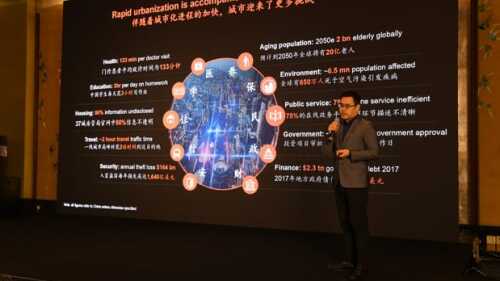May was a busy month for the Urban Land Institute. Our global reach was showcased at high-profile, back-to-back meetings in the United States, Asia, and Europe—each with a different focus, but all addressing the Institute’s core goal of creating vibrant communities for the 21st century.
This productive series of events started with ULI’s Spring Meeting, held May 8 to 10 in Charlotte, North Carolina, which drew more than 3,100 people—a sign of improving times. With the theme “The Power to Lead, the Energy to Thrive,” the meeting provided a forum for many discussions centered on energy use and its connection to urban development, as well as on the prominent role public/private partnerships are playing in economic growth in the post-recession environment.
The following week, May 16 to 18, ULI held its first ULI Asia Pacific Summit in Beijing, with the theme “Shaping Sustainable Urban Growth,” which focused on fostering sustainable development practices to ensure that China’s rapidly growing mega-cities offer residents livability and mobility. Then, on May 30 and 31, ULI held a real estate trends conference in London titled “Creating a Legacy,” which examined how best to leverage the economic and community development opportunities presented by playing host to a global event—in London’s case, the 2012 Summer Olympic Games.
In this 75th anniversary year for ULI, such a geographically diverse combination of major ULI events shows how the Institute has evolved—how ULI’s long-held tradition of information sharing has been expanded to and embraced in markets worldwide. The Institute’s founders viewed ULI as a community, and being part of it meant sharing knowledge to achieve the best outcomes for the built environment. While ULI has grown into a global organization, its unique function as a community of leaders exchanging insights, ideas, and information has not changed.
I take great pride in the fact that our organization still serves its original purpose as the one place for land use professionals to engage in candid conversations about and analysis of market trends, best practices, and future challenges facing urban markets. In this regard, each of you, as ULI members, is making a contribution to the Institute’s intellectual capital. Your membership in ULI is an investment in its future as a global real estate community. My job, as chief executive, is to ensure that ULI is a good steward of the resources you provide us with in terms of your expertise, your time, and your funds.
I am committed to broadening ULI’s scope globally while keeping a firm grasp on our main area of interest—real estate and urban development. We will do this not by trying to be everything to everyone, or by providing everything to everyone, but by tailoring our services to members who live and work in very different markets worldwide and who have different needs and motivations at different points in their careers.
To accomplish this, we have put in place four strategic goals to guide our program of work. They are: enhance the networks, connect content to constituencies, embed philanthropy and service, and improve the cost/value relationship to members.
- Enhance the networks: ULI has three primary member networks: councils, district councils, and the online community. We are continuing to improve the operations, efficiency, and member value of each to produce an information exchange system that is flexible and responsive, delivers consistently high-quality service, and is better integrated with the different parts of ULI.
- Connect content to constituencies: We are working to decentralize the creation of ULI’s content. The Institute’s content should reflect its global reach. We are developing better ways to cultivate and collect content from all the markets in which ULI has a presence and deliver this content to other parts of the ULI community.
- Embed philanthropy and service: In addition to building up our fundraising program, we are investing in several programs that reinforce the philanthropic nature of ULI and advance our community service efforts. These include Urban Plan, the urban development program for high school and college students; the Advisory Services program; and ULI’s professional education offerings.
- Improve the cost/value relationship for members: We are reviewing ULI’s membership structure in terms of how it is priced and the benefits and value delivered in order to make sure that membership is attractive and meaningful. We are also improving the value of our global program by developing plans to efficiently deliver member services around the world.
The point is to position ULI so that it attracts and retains those who can best help the Institute be equally effective globally and locally. ULI is in Asia for the same reason it is in the Americas and Europe: to exchange ideas and expertise—to get different perspectives on how we, as ULI members, can create urban environments that will serve future generations as great places to live and work. By stretching our thinking and learning from each other, we will ensure that ULI keeps its standing as the preeminent global land use community.



